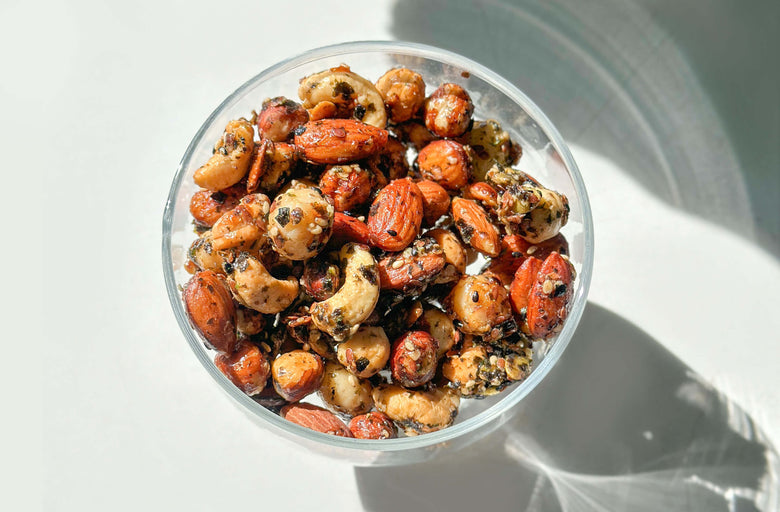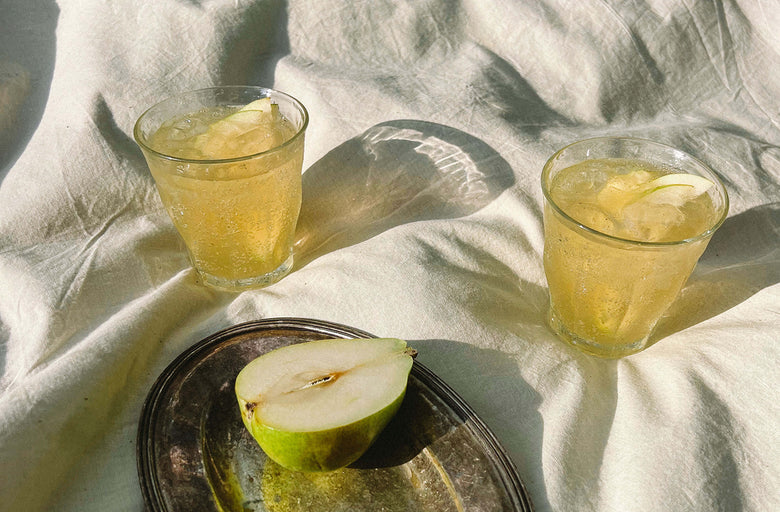Inflammation, or the condition in which a part of your body becomes red, swollen, and painful, comes from the Latin word inflammare, meaning “to cause to catch fire.” And if you suffer from one of the many manifestations associated with this condition, you know what that pain feels like. To truly treat inflammation, first, you have to understand what is happening in your body—and how to manage it—before it takes hold of your complexion.
Acute Vs. Chronic Inflammation
When you bump into a desk corner or finish a particularly hard HIIT class, your body attempts to heal itself with proteins called cytokines, which go straight to the source of the cause. Next, your arteries dilate, blood flow increases, and hormones alongside your white blood cells work to heal the damaged tissue. Accompanying fever or pain indicates the healing process. If you end up with a scrape or bruise, these reactions subside after a few days and your body resets. This is known as acute inflammation, and without it, we would be far-too-delicate creatures.
But a more deleterious form exists: chronic inflammation. It can result from a wide range of factors, from highly processed foods, to stress, to substances like alcohol and pollutants.
In this scenario, your white blood cells turn on their sirens to begin the healing process even in the case of a non-emergency. But with nowhere to go and nothing to do, they eventually start to attack the organs, or necessary tissues and cells. Inflammation is a result of an auto-immune response from your intelligent body trying to fight off something that registers as an infection or toxin. If your body’s always on the defensive, you run the risk of problems with your joints, thyroid, gut, and ultimately your skin.
Healing the Gut and the Skin
Your gut and your skin play similar roles. Both are covered in helpful bacteria when healthy, and both defend your body against pathogens. We know that the more diverse your microbiome bacteria are the better. The same applies to your skin. Certain strains of bacteria found on your skin are associated with a reduction in acne breakouts, improved hydration, and overall skin health.
If a healthy gut keeps inflammation at bay, clear skin is a direct result. This connection is often referred to as the skin-gut axis. So show us a compromised gut and we will show you a vulnerable complexion. A recent study identified the large role the microbiome plays in regulating the other organ systems—including the skin—and concluded a healthy, balanced microbiome can keep inflammatory skin diseases like acne and psoriasis in check.
A Natural Anti-Inflammatory Defense
The knee-jerk reaction to most inflammation, whether a daily discomfort or a constant condition, is to cover it up with painkillers or antibiotics that perhaps get you through the day, week, or even month. But a better defense is offense—that is, healing the root of the problem to bring your system into eternal balance while enjoying your clearest, most radiant skin.
Up your plants. Choose a plant-based diet full of whole fruits, vegetables, nuts, and seeds, like Sakara’s Signature Nutrition Program. Instead of processed bread, indulge in baked or steamed root vegetables such as sweet potatoes and beets, which offer additional vitamins, minerals, and phytonutrients that support healthy skin.
Become pro-probiotic. Probiotics have the power to correct imbalances in the microbiome, thereby helping to control inflammation. A daily probiotic like our Complete Probiotic Formula can reduce inflammation while helping digestion and easing bloat.
Befriend fat. And by that I mean healthy fats that come from coconut oil, cold-pressed olive oil, nuts, and avocados. Not only has research shown that the omega-3 fatty acids in these foods regulate inflammation, but they also support healthy cell membranes, which helps keep skin looking smooth and youthful.
Steer clear of triggers. While we never want to villainize any food, there are some dietary pitfalls when it comes to inflammation. Limiting fried foods, gluten, dairy, meat, eggs, refined cooking oils, and anything with additives and preservatives will be a boon to your gut and therefore your skin.
Turn in earlier. Skin-care expert and anti-inflammatory lifestyle advocate Dr. Barbara Sturm advises clients to not compromise on sleep. She's known to go to bed at the same time as her five-year-old.






